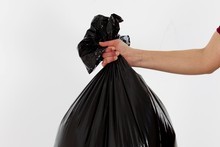Proposed Solid Waste Bylaw

A requirement to separate green waste from other household rubbish put out for collection is proposed in the regional draft bylaw, which will be open for public comment this month.
It joins provisions in some areas’ bylaws that require separation of refuse and recyclable material into containers.
People who try to save money under the user-pays’ refuse collection by using neighbours’ bins without their permission could also face fines for illegal dumping.
The bylaw will replace all existing regulations for waste in the region and is to come into force on November 1.
The three-bin system for separating organics, recyclables and refuse is three years away.
Collection operators will also be made to keep waste streams separate, or breach the terms of their licence agreements with Auckland Council, which has resolved to cut the amount of the region’s waste going to landfill by 30 per cent by 2018.
Council solid waste manager Warwick Jaine said the bylaw change was aimed at “gross behaviour”, rather than mistakes by a householder.
“If people are contaminating and causing problems down the waste processing stream we will have a series of progressive penalties that can apply with fines under the Litter Act.
“But the emphasis is on education – we are not going in with a heavy stick about paper going in the wrong bin.”
Mr Jaine said the bylaw would come with a new schedule of infringement fees, ranging from $100 to $400 for every subsequent offence within a year.
Discretion would be used in enforcing the bylaw.
The region had 165,000 individual containers collected daily, making it hard to see every offence, although more litter wardens would be about.
They would look for a continual trend of more than half a bin of contaminating material and especially people putting in full oil bottles which could to soil rubbish, streets and compacting machinery.
If a householder refused to separate the waste into three waste containers for collection from the kerbside, they would have to organise for it to be collected from their property by a private contractor.
They would not be allowed to put it out for the kerbside collection.
Mr Jaine said the council had a range of ways to identify sources of contamination.
They included having people walk ahead of collection trucks, opening up lids and leaving stickers to educate householders about what they should do.
Credits
Written by: Wayne Thompson | Email Wayne
Photo by: APN
Published by: NZ Herald August 10 2012